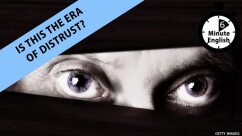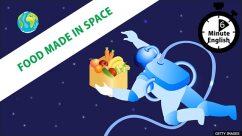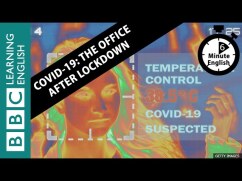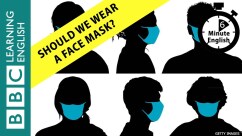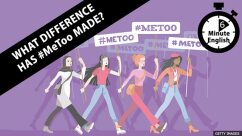Going to the Drugstore.pdf
Going to the Drugstore.mp3
COMPLETE TRANSCRIPT
Welcome to English as a Second Language Podcast number 13: Going to the
Drugstore
This is English as a Second Language Podcast episode 13 I’m your host, Dr
Jeff McQuillan, coming to you from the Center for Educational Development in
beautiful Los Angeles, California
On this podcast, we’re going to go to the pharmacy or drugstore Let’s get
started!
[start of story]
I stopped by the drugstore last night on my way back home from work I had a
few toiletries to pick up, as well as my prescription Fortunately,
the chain pharmacy where I go has a little bit of everything: food, greeting cards,
magazines – it’s almost as big as a regular supermarket
To begin with, I needed to get some medications for my allergies I've got hay
fever, so I'm sneezing up a storm every morning when I wake up While I was at
it, I also got some antacids and some Band-Aids Now it was time to pick up
my refill
I stood in line for a few minutes before being waited on Since it was not a new
prescription, the pharmacist didn't have to do a consultation with me I just gave
the clerk my insurance card and she rang up the sale Fortunately, I have a
low co-pay, so my HMO foots most of the bill
[end of story]
Now let’s talk about some of the words we used in our discussion of going to the
drugstore Let’s start with that term “drugstore” A “drugstore” is the same as a
“pharmacy” We could say that the word “drugstore” is synonymous with
pharmacy It means the same thing
I said that I “stopped by” the drugstore last night “To stop by” means that you are
going somewhere, but before you go to that place, you go somewhere else first
For example, I was going to my friend’s house over in Beverly Hills, and, on my
way there, I stopped by a store in West Los Angeles to pick up a bottle of wine
“To stop by somewhere, then, means to go somewhere before you go
somewhere else It implies that you may or may not have been planning on doing
that
I said that I was coming back from work I said, “I was on my way home” “To be
on your way” means to be going in that direction I’m on my way to the store, for
example Now, normally we use the preposition “to” after the phrase “on your
way,” but the word “home” is an exception There’s no “to” You just say, “I was
on my way home” For most other places, however, you have to add a “to” after
the phrase “on my way,” such as “I am on my way to the hospital” or “I am on my
way to buy a nice big hamburger” Oh, that sounds good!
I said that I had to pick up some “toiletries” “Toiletries” (toiletries) refers to
anything that you would use in your bathroom The word “toilet” and “bathroom”
are often used to mean the same thing in the United States Technically, of
course, “toilet” is just the thing you use to do, well, what you normally do in a
restroom or bathroom
I said I had to “pick up” some toiletries “To pick up” means to buy, to obtain, to
get It’s a two-word phrasal verb – “to pick up” One of the things I had to get was
my “prescription” A “prescription” (prescription) is what the doctor gives you for
some illness or some sickness A prescription drug is something that you can
only get with the doctor’s note, and that note is called a “prescription” But we
often use the term prescription to indicate both the drug as well as the note or
piece of paper the doctor has to sign, or put his signature on
I said that the pharmacy I went to was a “chain pharmacy” When we talk about a
“chain (chain) store,” we mean that there is more than one of these stores
There’s more than one “branch” (branch) So McDonald’s is a “chain’ restaurant,
because there are thousands of branches, or in this case, restaurants, that are
called McDonald’s They all belong to the same company or group of owners
Here in Southern California, there are many chain grocery stores You can also
have chain bookstores or a chain shoe store, or for any kind of business that
sells things You can even have a chain service business, such as a place that
cleans clothes or cuts your hair
I said that the pharmacy had a little bit of everything, including “greeting cards”
“Greeting cards” is a general term that means any sort of card that you would buy
for someone to give them for some special reason, some special occasion It
could be a birthday card, a Christmas card, an anniversary card, or any type of
special event card A greeting card could also be for someone you love I used to
give my wife greeting cards all the time to say how much I love her I still do,
being the good husband that I am, right? Anyway, all of these are called “greeting
cards”
But I didn’t go to the drugstore to buy greeting cards I went to there to get some
“medications” The term “medications” (medications) simply refers a type of drug
There are two basic kinds of medication you can buy in a drugstore or pharmacy
There are prescription medications, which require permission from your doctor,
and there are “over-the-counter” medications “Over-the-counter medications” are
medications or drugs that you can buy that you do not need a doctor’s
prescription for Examples of over-the-counter drugs include cold medicines,
cough medicine, medicine for your stomach, and certain pain killers, things you
take for when you have a headache Sometimes we call these by their initials,
“OTC,” meaning “over-the-counter”
I said that I needed to get some medications for my “allergies” “Allergies”
(allergies) are when your body reacts to different things it eats or smells or
touches It’s a negative reaction You can have an allergy to animals, like dogs or
cats I, for example, have a cat allergy So, whenever I’m close to a cat, I sneeze
- “Achoo!” that’s a sneeze That’s an allergy or an “allergic reaction” You can
have other kinds of allergic reactions Some problem may appear on your skin
You may have red bumps on your skin, red marks on your skin That might also
be a reaction to something that you ate or smelled or touched You can have an
allergy to certain kinds of plants You can have allergies to different foods I also
have an allergy to crab and lobster, which is too bad, because I used to love
eating that kind of food but I can’t anymore I developed an allergy as an adult
Another type of allergy is called “hay fever” “Hay (hay) fever” is an allergy to
different plants and, well, I have that, too My wife thinks I have an allergy to work
as well That’s probably true
Well, when I have hay fever, I sneeze I said I was “sneezing up a storm” “To
sneeze up a storm” means to sneeze a lot A “storm” is normally when you have
a lot of rain or a lot of wind So, “to sneeze up a storm” is a metaphor, an
expression that we use comparing one thing to another
I said that “While I was at it, I also got some antacids and some Band-Aids” This
expression “while I was at it” means since I was doing something at the same
time, that was in the same place, or that was somehow similar, I did something
else For example, you may say, “Could you go to the store and buy me some
milk? And while you’re at it, could you also get me some cereal for breakfast?”
So “while you’re at it” means “while you’re also doing something else, please do
this as well”
I said that, “While I was at it, I also got some Antacids” “Antacids” (antacids) are
to help your stomach when you are not feeling well when you eat something that
makes your stomach feel weird, feel funny, or makes your stomach hurt You
could take an antacid I also mentioned buying “Band-Aids” “Band-Aids” is
technically a brand of bandages in the United States A “brand” (brand) means
one particular company owns and uses the rights to that name “Apple,” for
example, is a brand of computers “Coca-Cola” is a brand of soda pop
There is a brand of bandages is called “Band-Aids” But they’re so popular that
now, many of us call almost all bandages “Band-Aids,” even when they’re made
by a different company There are different companies that make bandages
Bandages are things you would put on your skin For example, if you cut
yourself, you would put a bandage or a Band-Aid on to protect the area where
you cut your skin
I said I had to pick up a “refill” A “refill” (refill) is a prescription that the doctor
says you can get more than once or a drug that you can take multiple times –
many times So, for example, I have a prescription for my allergies, and I have
five “refills” That means I can go back to the pharmacy after I wait a few weeks,
usually, and get a bottle of the allergy medicine I can do that five times I have
five refills After that, I have to go back to the doctor to get another prescription to
get more drugs So, “to refill a prescription” means to get more of a drug that you
have already taken before
I said I stood in line for a few minutes before being “waited on” That expression
“to stand in line” means to be in line “To be waited on” is an expression you
often hear in a restaurant, but we also use the phrase for any sort of service
situation, any place where someone is going to help you, such as in a store or at
the post office
I said that the pharmacist didn’t have to do a consultation with me A
“pharmacist“ is the person who, of course works at a pharmacy We used to have
a term, “druggist” (druggist), to refer to someone who worked at a drugstore, but
now, you normally just hear the word “pharmacist” To become a pharmacist, you
have to go to a special kind of medical school called a “pharmacy school” where
you will get a degree in pharmacy You need that to dispense drugs “To
dispense” (dispense) means to give out, usually to give out a drug or some kind
of medicine When you have a new prescription, when you’re using a drug for the
first time, the pharmacist will have “consultation” with you A “consultation” just
means that they tell you what the drug is, what you should use it for, and how
you should use it In our story, I am not picking up a new prescription drug I’m
picking up a refill so I don’t need a consultation
I said that “I gave the clerk my insurance card and she rang up the sale” The
term “clerk” means anyone who works at a store, usually the person who takes
your money, the person who, as I say in the story, “rings up” your sale “To ring
up a sale” means to process the sale, to take your money, to put the money into
what’s called a “cash register,” which is the place where the store keeps its
money The clerk will also give you a receipt for your purchase, for the things that
you bought, usually a little piece of paper, although nowadays, some stores say
they can email you your receipt I’ve had that happen, at least once or twice
I also said that I had a “low co-pay” “Co-pay” stands for “co-payment” When you
have medical insurance in the United States, usually you have to pay a small
amount of money every time you go to the doctor and every time you pick up a
prescription It’s not the same amount you would pay if you did not have
insurance It’s always less than that The insurance company pays for most of
the cost of the drug or most of the cost of the doctor’s visit But you usually have
to pay maybe five, ten, perhaps twenty dollars of the cost of the drug or of the
visit That’s called a “co-pay”
I said that “My HMO foots most of the bill” “HMO” stands for “Health
Maintenance Organization” In the United States, an “HMO” is a private company
that provides you, that gives you, medical service They have doctors, they have
hospitals, they have pharmacies, and you buy insurance so that you can be a
member of the “HMO” Not everyone is a member of an “HMO” Many people in
the United States can’t afford, do not have money for, the private insurance, so
they have to go to a public clinic or hospital
I said that my HMO “foots most of the bill” “To foot (foot) the bill” means to pay
for, to take care of the expense or the cost “Who’s going to foot the bill for
tonight’s dinner?” That means “Who’s going to pay for tonight’s dinner?” It’s an
informal expression (And, no, I’m not going to foot the bill for dinner tonight!)
Now let’s listen to the story this time at a normal speed
[start of story]
I stopped by the drugstore last night on my way back home from work I had a
few toiletries to pick up, as well as my prescription Fortunately,
the chain pharmacy where I go has a little bit of everything: food, greeting cards,
magazines – it’s almost as big as a regular supermarket
To begin with, I needed to get some medications for my allergies I've got hay
fever, so I'm sneezing up a storm every morning when I wake up While I was at
it, I also got some antacids and some Band-Aids Now it was time for me to pick
up my refill
I stood in line for a few minutes before being waited on Since it was not a new
prescription, the pharmacist didn't have to do a consultation with me I just gave
the clerk my insurance card and she rang up the sale Fortunately, I have a
low co-pay, so my HMO foots most of the bill
[end of story]
Our scriptwriter writes about a little bit of everything Thank you for that, Dr Lucy
Tse
From Los Angeles, California, I’m Jeff McQuillan Thank you for listening Come
back and listen to us again right here on ESL Podcast
ESL Podcast is produced by the Center for Educational Development in Los
Angeles, California
GLOSSARY
drugstore – a store that sells medicine and medical supplies, and often
cosmetics, magazines, greeting cards, and some types of food
Valencia went to the drugstore to buy medicine for her headache*
toiletry – a category of products used to clean oneself
Desmond needed to buy a few toiletries, such as shampoo and toothpaste*
prescription – a type of medication or treatment that one needs a doctor’s
permission to get
Juana got a prescription from her doctor for a stronger pain reliever when the*
ones she bought at the drugstore didn’t get rid of her back pain
chain – a store, restaurant, or other business with the same name that is
available in more than one location
Jin likes to go to this chain restaurant, because no matter where he travels, he*
can always find a location and order his favorite dishes
medication – medicine; legal drugs used to treat medical conditions
Carmelo needed medication to treat his flu symptoms*
allergy – an unusual and negative response that the body has to a substance
that does not usually cause a negative response in most people
Latrice has an allergy to peanuts, causing her throat to become swollen*
whenever she eats something with peanuts in it
hay fever – seasonal allergy to plants or flowers; a condition that causes one to
have problems with one’s eyes and nose when around certain types of plants or
flowers
When the pollen count is high, many people start to get hay fever*
to sneeze – to rapidly and unintentionally force air out of the nose or mouth
The room was very dusty and anyone who entered it started sneezing*
up a storm - doing something with a lot of energy; doing something with a lot of
interest and enjoyment
Louisa and Ling had not seen each other in five years, and when they met up*
again, they talked up a storm
antacid – a small tablet or pill used to treat problems caused by stomach acid (a
chemical that causes irritation)
Some of Juan’s favorite foods bothered his stomach, so instead of not eating*
those foods, he took an antacid whenever he had them
Band-Aid – a bandage with a center section of soft material to cover a small cut
and two sides that stick to the skin to protect it while it heals
Alyssa had a small scratch on her finger, so she put a Band-Aid on it*
refill – a supply of medicine that is given to a patient after the first supply has
been used
When the medicine for Kenneth’s heart condition was gone, he went to the*
store to get a refill
pharmacist – someone who is trained to prepare legal drugs used to treat
medical conditions and who prepares those drugs for a patient’s use
The pharmacist was able to answer Catherine’s questions about the right way*
to use the medicine she was buying
consultation – a discussion with a professional to get advice or guidance; a
discussion a customers has with a pharmacist on the correct and best use of
medicine
All of the customer’s questions about the medicine were answered during the*
consultation
co-pay – a small amount of money that one pays for medical services when
another part of the payment is paid by an insurance company (a company that
pays for health and medical expenses)
The insurance company will pay most of the bill, but Terrance still has to pay a*
co-pay of $10 for each visit with his doctor
HMO – Health Maintenance Organization; personal health insurance; a business
that pays part of the cost or the full cost for certain medical bills of its customers,
in exchange for a monthly or yearly fee
Debi felt very lucky to be a member of an HMO when she had to have surgery*
because the HMO paid for most of her medical bills
to foot the bill – to pay a bill or fee; to pay money owed
Florencio likes to go out to dinner with friends, but doesn’t like to foot the bill*

